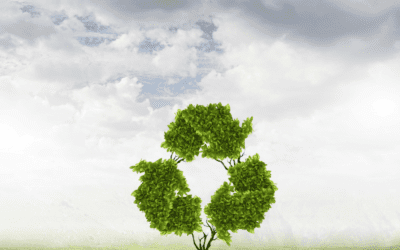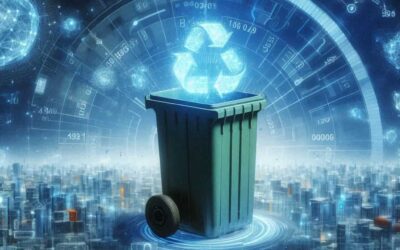Waste management plays a significant role in the climate crisis. The better we manage our waste so that we are recovering, reusing and recycling more – alongside educating businesses and consumers to buy and use materials differently – the more positive an impact we can have.
Technology has a central part to play in the sector, and there are many companies devoting their energies and expertise to develop innovative technologies that can help to shape both a more efficient and a more sustainable industry.
We cover a few of these ‘Envirotech’ ideas in this article, many of which are either in trial or already in use. Where technologies can be shown to be commercially viable as well as planet-friendly, all of us involved in the waste industry should be looking at early adoption so we can play our part in a healthier planet.
Advanced technology for recycling
One of the most common complaints about recycling is the difficulty of managing waste streams. As many recycling services are operated on an area-by-area basis, it’s common to see that some materials can be recycled in one place, but are not even collected in another. Add to that the challenge of recycling more difficult waste items, and there is a lot of material being wasted that could be repurposed or reused.
Researchers looking into advanced recycling are focusing on these more challenging waste streams, including chemical, electrochemical and biological waste. This research is looking at the transformation of certain organic wastes, chemical recycling of plastic waste and using technology to break down more complex materials into their basic components.
Smarter sorting technology
Sorting waste materials is often a bottleneck for waste management and recycling companies – and the more waste they are asked to manage, the more of a problem it becomes. So investigating how to make this process more efficient is important. This area is where artificial intelligence and machine learning have a role. Training machines to recognise different materials and sort them efficiently means that sorting lines can run faster, there’s less human error in the process, and more waste streams can be sorted – working on a 24/7 basis if necessary.
Using the Internet of Things (IoT)
The Internet of Things is a term used to describe how physical objects can be connected by technology. It usually involves sensors that are connected to networks and provide real-time data to help deliver a wide range of efficiencies.
In the waste management industry, sensors are already being used around the world to help companies improve collections, plan their routes sustainably and discover operational efficiencies.
For example, the United Arab Emirates has been using IoT sensors to monitor recycling centres for more than five years, and other countries in the Middle East region have followed suit, using IoT for waste management as part of a wider ‘smart cities’ approach.
Similarly, in Norway – a country with very different climate conditions to the Middle East – sensors are used to monitor the amount of waste in bins so that collections can be better planned. In the winter, collections are kept to a minimum, while in the busier tourist summer months, the waste is collected more regularly. Advances in sensor technology mean that waste companies can also detect when the wrong materials have been put in a bin, helping consumers to improve their recycling habits.
Using blockchain for traceability
Around the world, governments are placing increasing requirements on businesses to prove that they have sustainable supply and waste management chains. These requirements are based on transparent reporting, which is often audited, with large fines and even custodial sentences for serious breaches.
Businesses therefore rely on their waste management companies to help them in a number of ways:
- Manage a range of waste collections efficiently and cost-effectively
- Provide full traceability of recycling and other waste management processes
- Deliver transparent reporting
Blockchain technology can help waste management companies to meet the needs of their commercial clients. Blockchain records and verifies transactions securely across a distributed database. It can help waste management companies to record and verify each step of their processes, leading to better reporting and oversight.
Technology is constantly changing. Where waste management and recycling companies can adapt and use the latest technologies to sustainably and efficiently manage their processes, they will make a positive contribution to waste reduction, lowering the impact that waste has on the climate crisis.
To find out more, contact our team today or visit our showcase below.






